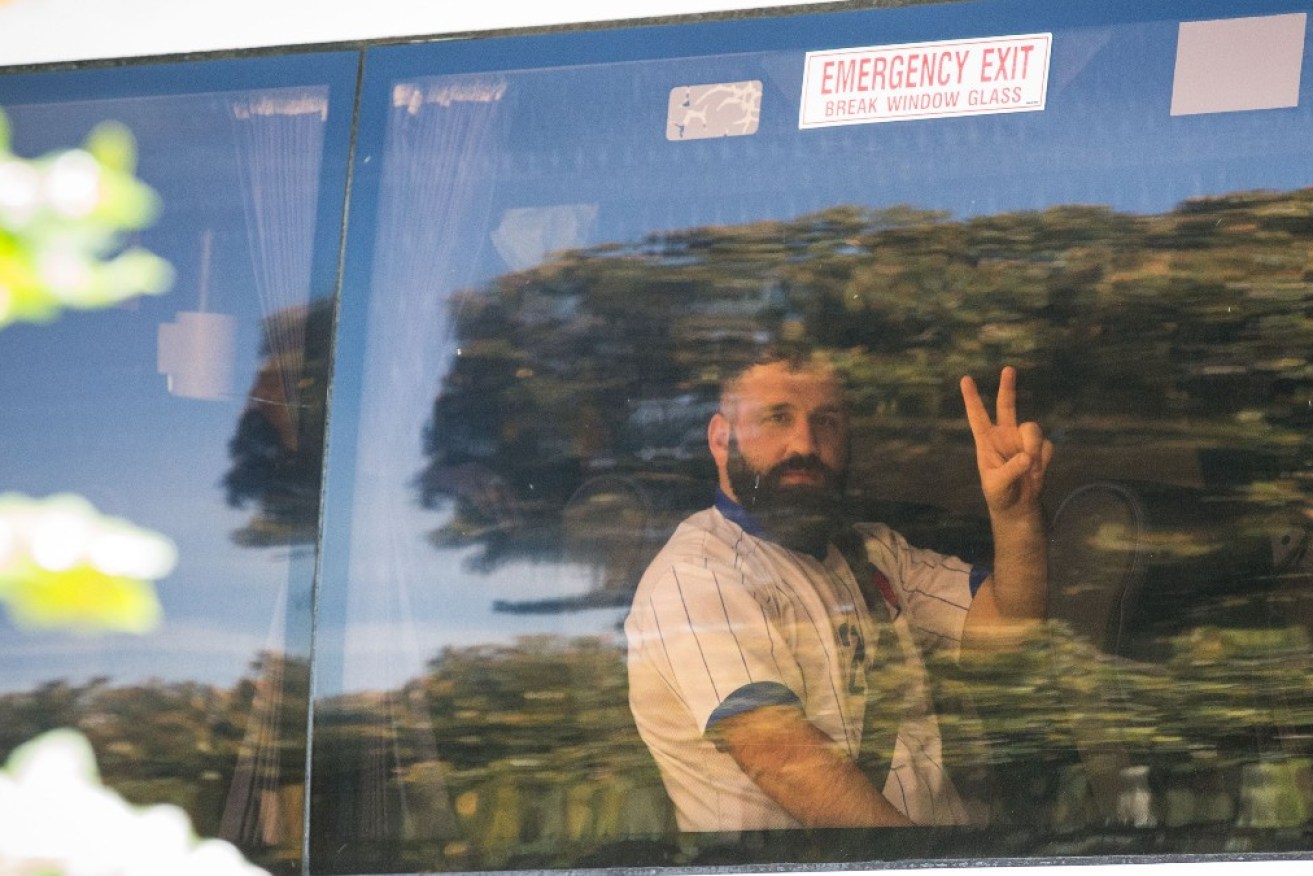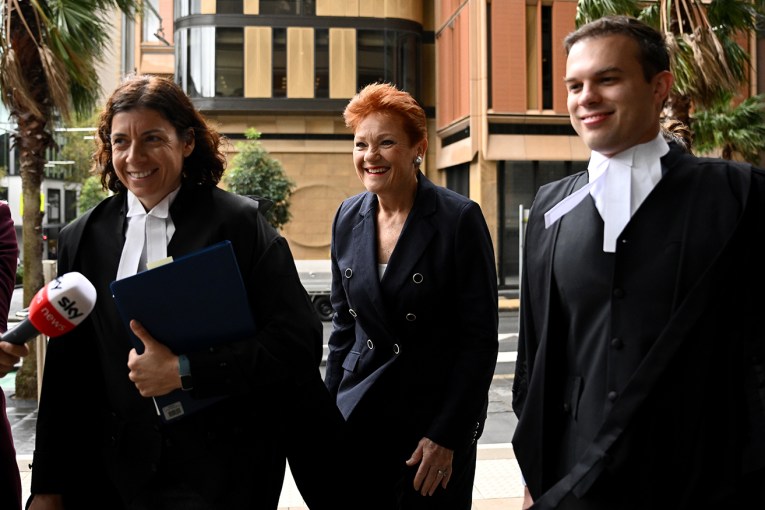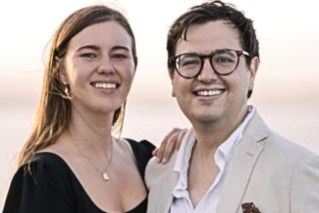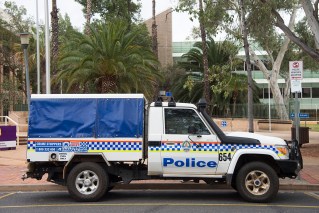‘Incredibly onerous’: Refugees lured by hope of a visa that’s near-impossible to secure

Despite the system being in place for six years, no refugee has been able to use the SHEV pathway to permanently settle. Photo: Getty
Not one refugee has been able to take advantage of a loophole in the federal government’s long-held vow never to permanently settle asylum seekers who arrived in Australia by boat, new figures show.
Offered as a glimmer of hope, the strict regulations around the rare visa pathway mean they have been designed as near-impossible to meet, leaving refugees in a state of hopelessness that sometimes borders on suicidal.
Despite the federal government’s stance that allowing such refugees to settle in Australia could reignite the people smuggling trade, those who hold a Safe Haven Enterprise Visa (SHEV), live in a regional area for 3.5 years, study or work full time and do not receive certain Centrelink benefits have been eligible since at least April 2019 to apply for further visas, some of which allow for permanent settlement.
The policy, known as the SHEV pathway, was born out of wrangling in 2014 between the government and then-senator Clive Palmer, who argued that regional areas in the grip of labour shortages would benefit if refugees were wooed away from big cities.
But Department of Home Affairs statistics released to The New Daily under Freedom of Information laws show that not only have no visas been granted to SHEV holders, but also that no one has ever applied through the system.
In addition to the rights and perks of permanent residency, some of the visas also offer refugees the prize of reuniting with family members overseas who they face indefinite separation from since arriving in Australia at least seven years ago.

Clive Palmer fought for the SHEV pathway, in the hopes of feeding labour into regional areas.
While about 4000 SHEV holders were living in a regional area – a category that includes Adelaide, Canberra and Hobart – as of late last year migration agents and policy advocates say that refugees, hobbled by the government’s other refugee policies, are unable to meet the high bar required to clinch another visa.
“Essentially the policy has failed in its intentions,” said Asher Hirsch, a senior policy officer at the Refugee Council of Australia.
“From the outset we knew it would never work because the requirements to apply for a subsequent visa – even if you do manage to work or study in a regional area for three and half years – is incredibly onerous, so that not many people are going to be able to meet those.”
The main stumbling blocks include meeting the demanding requirements of a skilled or employer-sponsored visa, Mr Hirsch said, which require high-level qualifications that almost all refugees are unable to obtain because they must pay hefty international student fees to study in Australia.

Protesters cry out for changes to the way Australian processes asylum seekers.
“A lot of refugees who have applied through SHEV haven’t necessarily got formal qualifications,” said Carina Ford, a Melbourne migration agent.
“And then the issues become: How do they upgrade their skills and at the same time support themselves while on a SHEV visa?
“We’ve seen some really successful SHEV and [temporary protection visa] holders who’ve managed to get scholarships and things but that’s not necessarily available for everyone.”
For skilled visas, refugees are also thrust into a global competition of highly educated and experienced applicants from rich countries and must achieve top marks in English-language assessments.
“You need to be highly academically educated in order to be able to meet the minimum English requirement for the skills migration program,” said Mohammad Reza Azimi, a Parramatta migration agent.
I am sure many Australians may not be able pass the test, let alone refugees.’’
Skilled labourers like tilers and bricklayers are most likely to qualify for skilled visas, but often struggle to meet the steep English-language requirements, experts said.
The federal government last year said it would boost access to free English-language education services offered to adult refugees.
Zaki Haidari, an Afghan who came to Australia by boat in 2012 aged 17, relocated to Canberra from Sydney in the hope that after three and a half years he would be able to use the SHEV pathway to a permanent visa.
Despite attending university in Australia and having near-perfect English, he was unable to satisfy the requirements of any of the permanent visa options, and fears applying for a new temporary visa would mean he would lose his refugee status and have to reapply when it ran out.
“I kind of lost my hope,” Mr Haidari, an employment support worker for refugees, told The New Daily.
“So I moved back to Sydney, very hopeless that there are no pathways after living here for four years. So the promise that was given to us – it’s not there.
“I still did what I was asked for, and I was hoping at the end there would be some kinds of other ways to get visas, not necessarily applying for a skilled visa, but there are none.”
There were 12,366 SHEV holders as of December, according to Home Affairs figures.
The department told a parliamentary inquiry in October that 33 per cent of those are living in areas eligible for the pathway to additional visas.

Refugees and asylum seekers are being welcomed into all corners of the community, but it’s not always easy. Photo: Getty
A 2018 Home Affairs policy paper, released to Mr Hirsch under Freedom of Information last year, shows the government was unable to predict how many SHEV holders would be able to complete the pathway but expected it to be “relatively low”, noting “significant” visa costs and the tough educational and skills requirements.
During the coronavirus pandemic the government eased the SHEV pathway process so that visa holders who became unemployed or needed to access certain welfare payments for a limited period were not disqualified, a Home Affairs spokesperson said.








